Ireland limped over the line with a poor defeat against Wales in game two of Super Saturday handing the home side the Grand Slam title and unfortunately rendering a manic final game between England and Scotland completely meaningless.
It’s hard to argue that there were quite a few underperformers for Ireland in this tournament – neither Conor Murray or Johnny Sexton looked their composed selves and are possibly still getting over their respective injuries – and it led to a disappointing all round tournament that had plenty of expectation beforehand. Murray and Sexton weren’t the only players not firing on all cylinders but certainly grabbed the attention of the press as well as supporters on social media due to their quality and Ireland’s heavy reliance on them.
Players Used
Ireland used 36 players in the tournament this year, six more than last year in an attempt to bolster their strength and depth ahead of the World Cup next season. Only Peter O’Mahony played every minute of every game while Jacob Stockdale only missed eight minutes of the tournament when he was subbed off against Scotland.
| PLAYER | APPEARANCES | MINUTES |
|---|---|---|
| Peter O’Mahony | 5 | 400 |
| Jacob Stockdale | 5 | 392 |
| Keith Earls | 5 | 357 |
| Conor Murray | 5 | 351 |
| Bundee Aki | 5 | 332 |
| James Ryan | 4 | 320 |
| Tadhg Furlong | 5 | 316 |
| Johnny Sexton | 5 | 313 |
| Rory Best | 4 | 263 |
| Garry Ringrose | 3 | 231 |
| Cian Healy | 4 | 229 |
| Rob Kearney | 3 | 225 |
| CJ Stander | 3 | 225 |
| Sean O’Brien | 4 | 187 |
| Quinn Roux | 4 | 170 |
| Jack Conan | 3 | 166 |
| Chris Farrell | 2 | 160 |
| Dave Kilcoyne | 5 | 154 |
| Jordan Larmour | 4 | 142 |
| Josh vd Flier | 4 | 142 |
| Ultan Dillane | 3 | 107 |
| Iain Henderson | 2 | 87 |
| Jordi Murphy | 1 | 80 |
| Robbie Henshaw | 1 | 80 |
| Sean Cronin | 3 | 74 |
| Andrew Conway | 2 | 72 |
| Joey Carbery | 2 | 65 |
| Niall Scannell | 3 | 63 |
| Tadhg Beirne | 1 | 59 |
| Devin Toner | 1 | 57 |
| Andrew Porter | 3 | 45 |
| John Ryan | 2 | 39 |
| John Cooney | 4 | 37 |
| Jack Carty | 3 | 31 |
| Jack McGrath | 1 | 17 |
| Kieran Marmion | 1 | 12 |
Unsurprisingly, France had no players playing the maximum minutes with Damien Penaud leading from the front on 373 minutes. Out of the rest of the sides, Elliot Daly, Jayden Hayward, Grant Gilchrist, Jonathan Davies and Josh Adams played 400 minutes.
Scorers
Owen Farrell scored the most points of the tournament with 59, including one try while Ireland’s top point scorer was Sexton, fifth in the overall rankings with 23. Jonny May scored the most tries with six, one behind Stockdale’s effort last year. Stockdale didn’t have much success this season scoring just twice in rounds two and three against Scotland and Italy respectively. Keith Earls was Ireland’s top try scorer with three. Earls moves to joint second in the all-time Ireland try scoring records, level with Tommy Bowe on 30.
| PLAYER | POINTS | MINUTES |
|---|---|---|
| Owen Farrell | 59 | 371 |
| Gareth Anscombe | 43 | 312 |
| Tommaso Allan | 34 | 369 |
| Jonny May | 30 | 390 |
| Johnny Sexton | 23 | 313 |
| Greig Laidlaw | 21 | 216 |
| Yoann Huget | 20 | 338 |
| Conor Murray | 16 | 351 |
| Henry Slade | 15 | 338 |
| Romain Ntamack | 15 | 346 |
Interestingly, Wales were joint lowest try scorers in the tournament with ten alongside Italy despite winning the Grand Slam however they conceded three tries less than the nearest team, Ireland. Ireland were joint second in the try scoring charts with Scotland (14) and behind England, who led by ten tries (24). Wales showed that a Grand Slam can be won via a solid defence rather than an explosive attack.
| PLAYER | TRIES | MINUTES |
|---|---|---|
| Jonny May | 6 | 390 |
| Yoann Huget | 4 | 338 |
| Darcy Graham | 3 | 225 |
| Blair Kinghorn | 3 | 254 |
| Henry Slade | 3 | 338 |
| Edoardo Padovani | 3 | 351 |
| Keith Earls | 3 | 357 |
| Josh Adams | 3 | 400 |
| Conor Murray | 2 | 351 |
| Tom Curry | 2 | 361 |
Finn Russell supplied the most try assists (4) and at times showed how he can be a massive threat to Ireland’s World Cup chances when they face Scotland in the opening match of the tournament. Lastly, France were the only side to land a drop kick – a severely underused method of points scoring in my opinion – thanks to Camille Lopez‘s effort in the opening game and Romain N’tamack’s goal against Italy.
Attack
In the two matches Ireland lost, Wales and England were happy to let Ireland plug away from deep and then attack them on the counter by forcing a mistake through a dominant tackle or blitz defence. Both sides had an answer to every question asked by Ireland. Against France, Ireland looked better attacking wise, but still left a lot of points out on the pitch considering the amount of line-breaks and beaten defenders from Irish strike runners.
In 2018, Ireland preyed upon defensive mistakes and then routinely punished sides through ball retention and one out runners. With defensive sides not making as many mistakes as last year, Schmidt’s men found it hard to break down the opposition, resulting in six less tries than 2018.
Top carrier
| PLAYER | CARRIES | METERS | METERS PER CARRY | DEFENDERS BEATEN | CLEAN BREAKS | OFFLOADS |
|---|---|---|---|---|---|---|
| Billy Vunipola | 71 | 231 | 3.2 | 9 | 1 | 5 |
| James Ryan | 63 | 74 | 1.2 | 2 | 0 | 0 |
| Braam Steyn | 60 | 122 | 2 | 2 | 0 | 0 |
| Louis Picamoles | 56 | 196 | 3.5 | 7 | 4 | 7 |
| Jayden Hayward | 54 | 373 | 6.9 | 16 | 4 | 6 |
James Ryan is Ireland’s top carrier followed by Tadhg Furlong and Bundee Aki. Stockdale made 42 carries while Iain Henderson made 17 in his 87 minutes.
Most metres run
| PLAYER | CARRIES | METERS | METERS PER CARRY | DEFENDERS BEATEN | CLEAN BREAKS | OFFLOADS |
|---|---|---|---|---|---|---|
| Jacob Stockdale | 42 | 395 | 9.4 | 23 | 7 | 1 |
| Jayden Hayward | 54 | 373 | 6.9 | 16 | 4 | 6 |
| Blair Kinghorn | 47 | 323 | 6.8 | 14 | 10 | 2 |
| Jonny May | 52 | 284 | 5.4 | 9 | 11 | 4 |
| Damien Penaud | 28 | 279 | 9.9 | 14 | 7 | 4 |
Ulster’s Stockdale leads the way in the metres run charts ahead of Earls on 171m. Earls had a solid tournament on the whole, but is only 18th on the list for all sides. Three Italians, two Welsh, one Scot, six English and four French are ahead of him which goes to show how much homework the opposition had done on Ireland’s attacking game plan.
Metres per carry
| PLAYER | CARRIES | METERS | METERS PER CARRY | DEFENDERS BEATEN | CLEAN BREAKS | OFFLOADS |
|---|---|---|---|---|---|---|
| Yoann Huget | 27 | 277 | 10.3 | 18 | 8 | 2 |
| Damien Penaud | 28 | 279 | 9.9 | 14 | 7 | 4 |
| Jacob Stockdale | 42 | 395 | 9.4 | 23 | 7 | 1 |
| Stuart Hogg | 18 | 162 | 9.0 | 5 | 4 | 2 |
| Henry Slade | 38 | 271 | 7.1 | 7 | 12 | 2 |
After round four, Stockdale was the only player to average more than ten metres per carry however he didn’t get much joy against France, recording an average of 3.8m per carry. Dan Robson and Joe Cokanasiga averaged 27m and 13m per carry respectively but neither reached ten carries which was the minimum to be included in the list.
Rob Kearney was second for Ireland with an average of 6.1m which sees him come in 12th in the overall list. Jordan Larmour and Earls were third and fourth for Ireland with the former averaging 5.9m and the latter 5.7m.
Defenders beaten
| PLAYER | CARRIES | METERS | METERS PER CARRY | DEFENDERS BEATEN | CLEAN BREAKS | OFFLOADS |
|---|---|---|---|---|---|---|
| Jacob Stockdale | 42 | 395 | 9.4 | 23 | 7 | 1 |
| Yoann Huget | 27 | 277 | 10.3 | 18 | 8 | 2 |
| Sam Johnson | 35 | 133 | 3.8 | 18 | 5 | 1 |
| Jack Nowell | 38 | 191 | 5 | 17 | 5 | 1 |
| Antoine Dupont | 40 | 178 | 4.4 | 17 | 8 | 7 |
It’s not all doom and gloom as Stockdale showed he hasn’t lost the golden touch that he had in last year’s tournament with a competition high of 23 defenders beaten. Again, Earls was second for Ireland and 13th overall with 12 defenders beaten. Larmour was third for Ireland 17th overall, level with Garry Ringrose on ten. The massive jump from first to 13th between Ireland’s players with the most defenders beaten, shows how inefficient Ireland’s attack was.
Clean Breaks
| PLAYER | CARRIES | METERS | METERS PER CARRY | DEFENDERS BEATEN | CLEAN BREAKS | OFFLOADS |
|---|---|---|---|---|---|---|
| Henry Slade | 38 | 271 | 7.1 | 7 | 12 | 2 |
| Jonny May | 52 | 284 | 5.4 | 9 | 11 | 4 |
| Blair Kinghorn | 47 | 323 | 6.8 | 14 | 10 | 2 |
| Josh Adams | 27 | 277 | 10.2 | 18 | 8 | 2 |
| Yoann Huget | 27 | 277 | 10.3 | 18 | 8 | 2 |
England lead the way with clean breaks, which is unsurprising considering they scored ten more tries than the side with the second most. Scotland followed with 56, with a manic final game between the sides presumably boosting their figures.
Ireland only made 32 with only Grand Slam Champions, Wales making less (31). Indeed, Warren Gatland’s side only scored ten tries, the lowest the winners have got since Ireland only scored eight on the way to the 2015 title. I’m not sure Ireland – or Wales – can compete with New Zealand or South Africa when making so few clean breaks.
Offloads
| PLAYER | CARRIES | METERS | METERS PER CARRY | DEFENDERS BEATEN | CLEAN BREAKS | OFFLOADS |
|---|---|---|---|---|---|---|
| Mathieu Bastareaud | 31 | 115 | 3.6 | 9 | 3 | 9 |
| Antoine Dupont | 40 | 178 | 4.4 | 17 | 8 | 7 |
| Louis Picamoles | 56 | 196 | 3.5 | 7 | 4 | 7 |
| Jayden Hayward | 54 | 373 | 6.9 | 16 | 4 | 6 |
| Elliot Daly | 50 | 274 | 5.5 | 13 | 4 | 5 |
Much of France’s misery was caused by some interesting selections that defied logic. Antoine Dupont has been one of the form players in Toulouse this season but was omitted from the starting lineup in their opening two matches. Coming off the bench in the humiliation of England he beat nine defenders, made five clean breaks and offloaded four times. It’s not often you get an offloading scrum half, particularly one with the diminutive stature of Dupont, but he quickened the pace of their attack and it paid off against Scotland.
Defence
On the whole, Ireland’s defence wasn’t their worst facet of the game. As they like to control possession – they had the most possession in all of the matches – the tackle count was relatively low compared to other sides. None of the opposition managed to make less than 150 tackles, with England, Scotland and Italy all making over 200 tackles in comparison to Ireland who made over 150 tackles twice in the tournament.
Tackles
| PLAYER | TACKLES | TACKLE SUCCESS |
|---|---|---|
| Tom Curry | 86 | 89.5% |
| Josh Navidi | 83 | 95.8% |
| Jamie George | 78 | 94.0% |
| Mark Wilson | 78 | 90.7% |
| Allan Dell | 76 | 95.0% |
Ireland’s tackle statistics are an indication of how they like to play. Ryan was the leading tackler with 49, coming in at 23rd in the total statistics while CJ Stander came second in Ireland’s statistics, and 40th with 39 tackles in the total rankings. Ryan and Stander were the only two Irish players in the top 40, which shows how much of the ball Ireland had in the tournament.
| COUNTRY | PLAYERS IN TOP 40 FOR TACKLES |
|---|---|
| England | 9 |
| France | 8 |
| Scotland | 8 |
| Wales | 7 |
| Italy | 6 |
| Ireland | 2 |
Tackle completion rate
| PLAYER | TACKLES | SUCCESS RATE |
|---|---|---|
| Jonny Gray | 68 | 98.5% |
| James Ryan | 49 | 98.0% |
| Sebastien Negri | 44 | 97.8% |
| Maku Vunipola | 38 | 97.4% |
| Justin Tipuric | 67 | 97.1% |
The threshold for inclusion in this leaderboard was 30 tackles so 28 players who had a 100% success rate miss out. Of those, Brad Shields was the closest to inclusion with 21 hits. Considering Ireland made the the least amount of tackles in the tournament, they missed the least (91) closely followed by Wales (92). Scotland topped this table with 141 missed tackles, however I would be reluctant to draw too many conclusions from this other than Wales tournament win was built on a very impressive defensive effort thanks to a superb coaching ticket of Warren Gatland and Shaun Edwards.
Where now for Ireland?
Overall Ireland were disappointing but it was always going to be hard to replicate last season’s exploits. Not many sides are able to win the Grand Slam back to back as France were the last side to do it in 1997 and 1998. I don’t think the tournament was as high quality as previous editions, as quite a few teams, including the Grand Slam winners, looked off the boil in one or two matches.
Ireland take on Scotland in the opening game of the RWC2019 on the 22nd September but there’s plenty of time for Ireland to recover. While a lot of the criticism has been fair, there’s been an equal amount which was been over the top. The failure in this tournament will pose questions, but the disappointment should re-calibrate the focus ahead of chasing that first ever semi final berth.
The lack of ruthlessness in the final game was a particular sore point while the Italian game saw many errors and Ireland were fortunate to escape with a bonus point win. Yes, Ireland experimented giving a select number of fringe players starts, but the jury is out as to whether they stepped up to the plate. In particular, Joe’s lack of faith in the replacement half backs is worrying, especially with a lack of form from the halfbacks.
Nevertheless, Ireland are in a much better position going into this tournament than they were heading into RWC2015 and I still think that they’ll be a challenge to whoever they meet in the quarter finals, providing they don’t replicate 2007’s campaign. It’s still the strongest Irish side we’ve seen in recent years and they have enough quality to reach the semi finals.



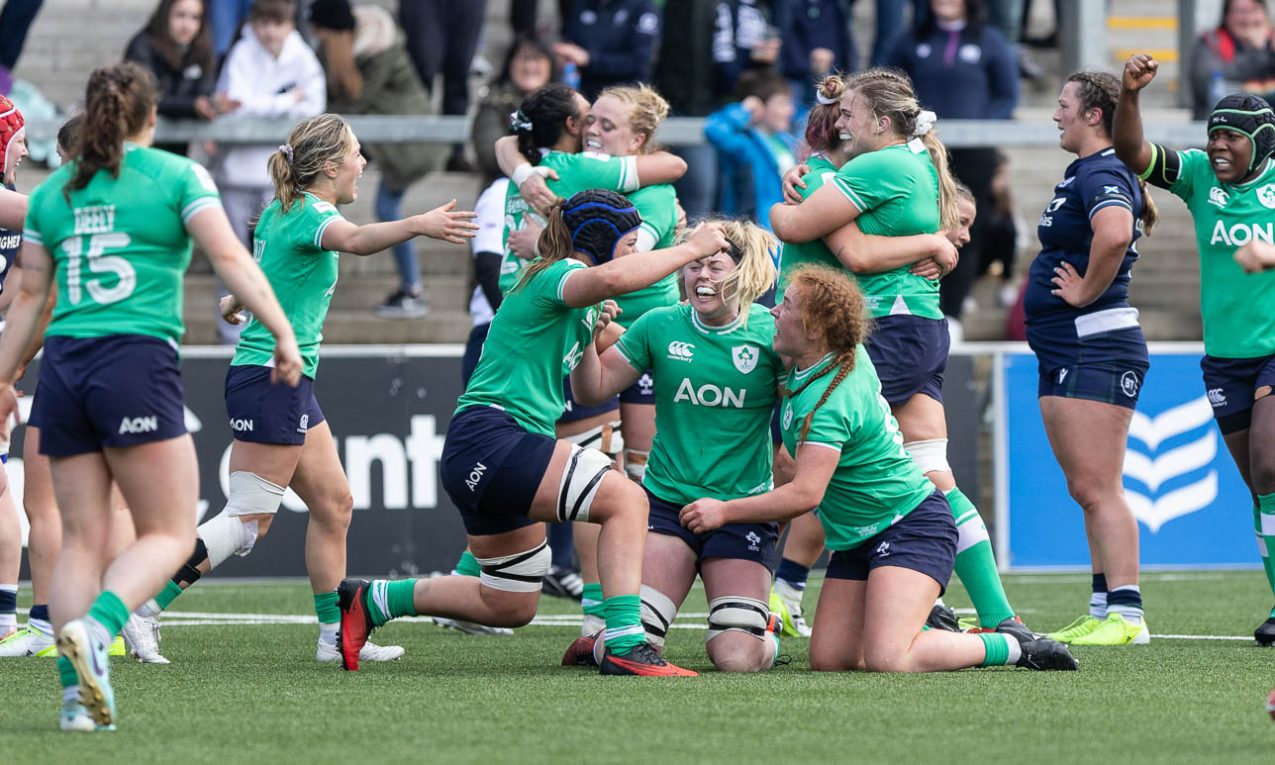
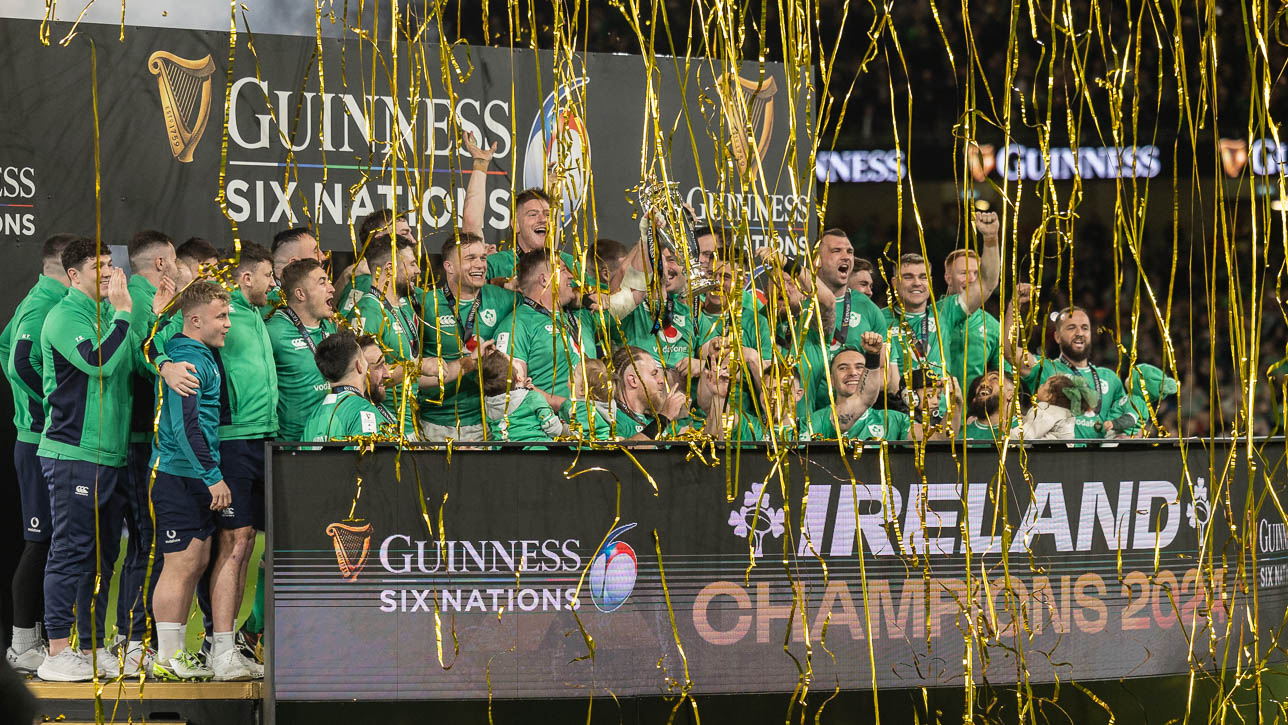
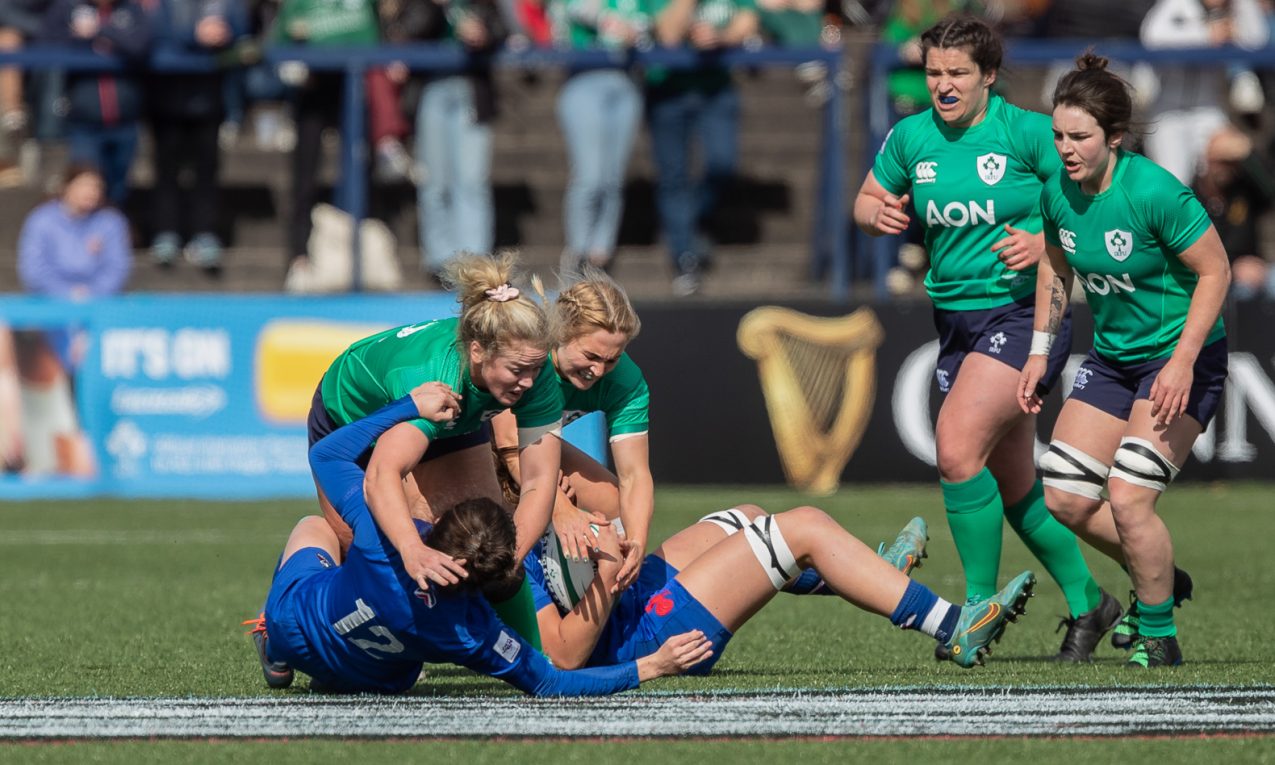

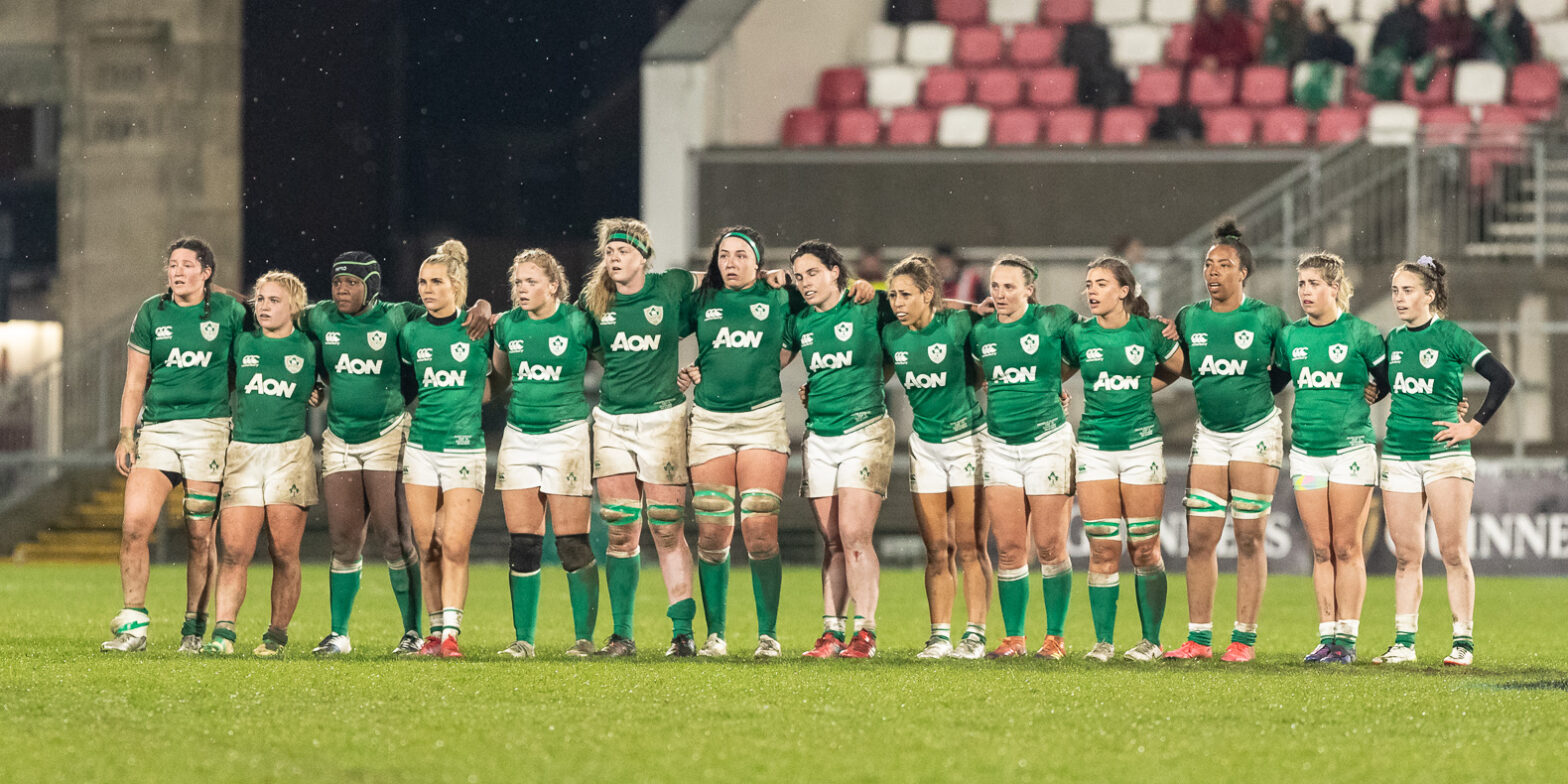
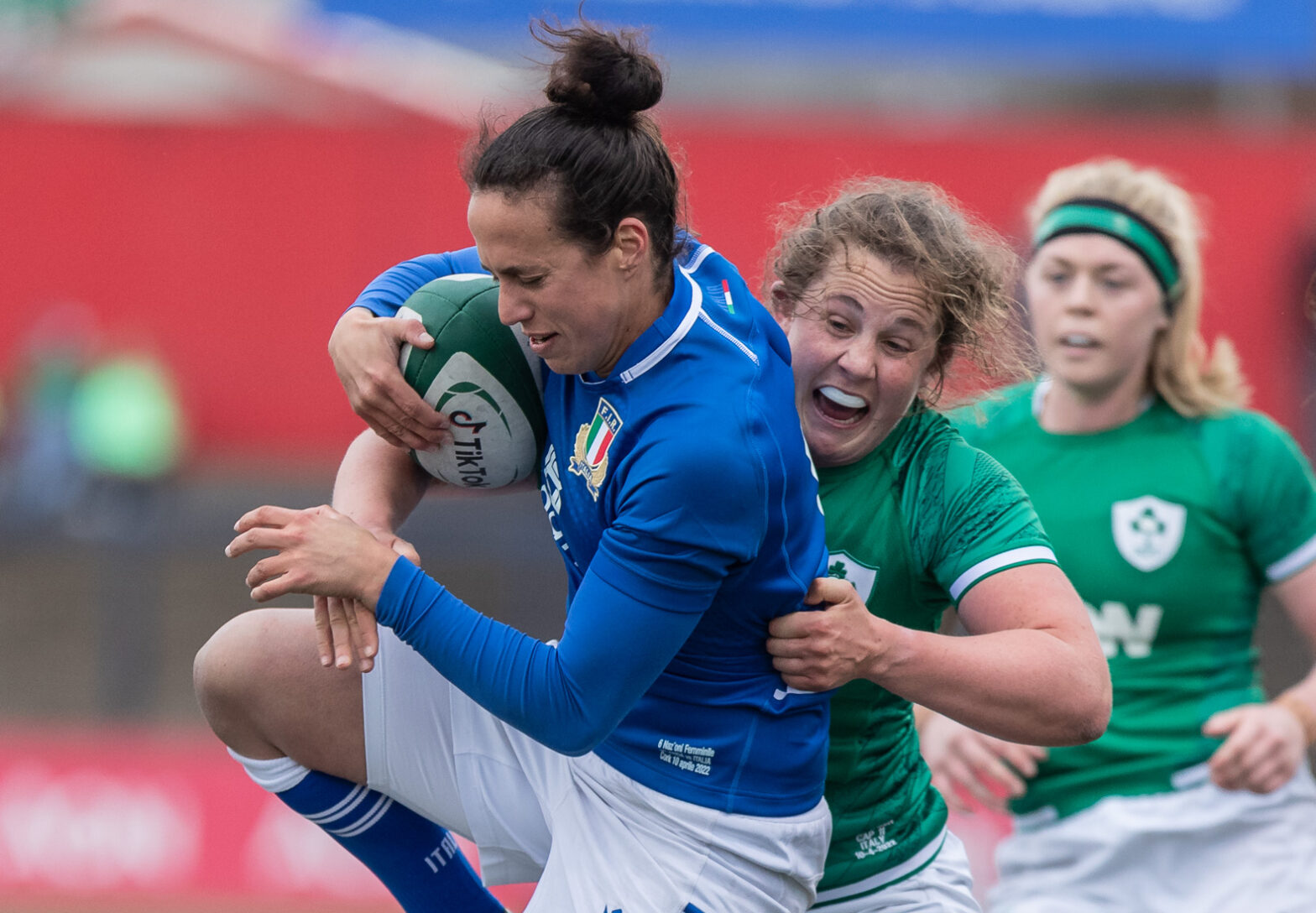
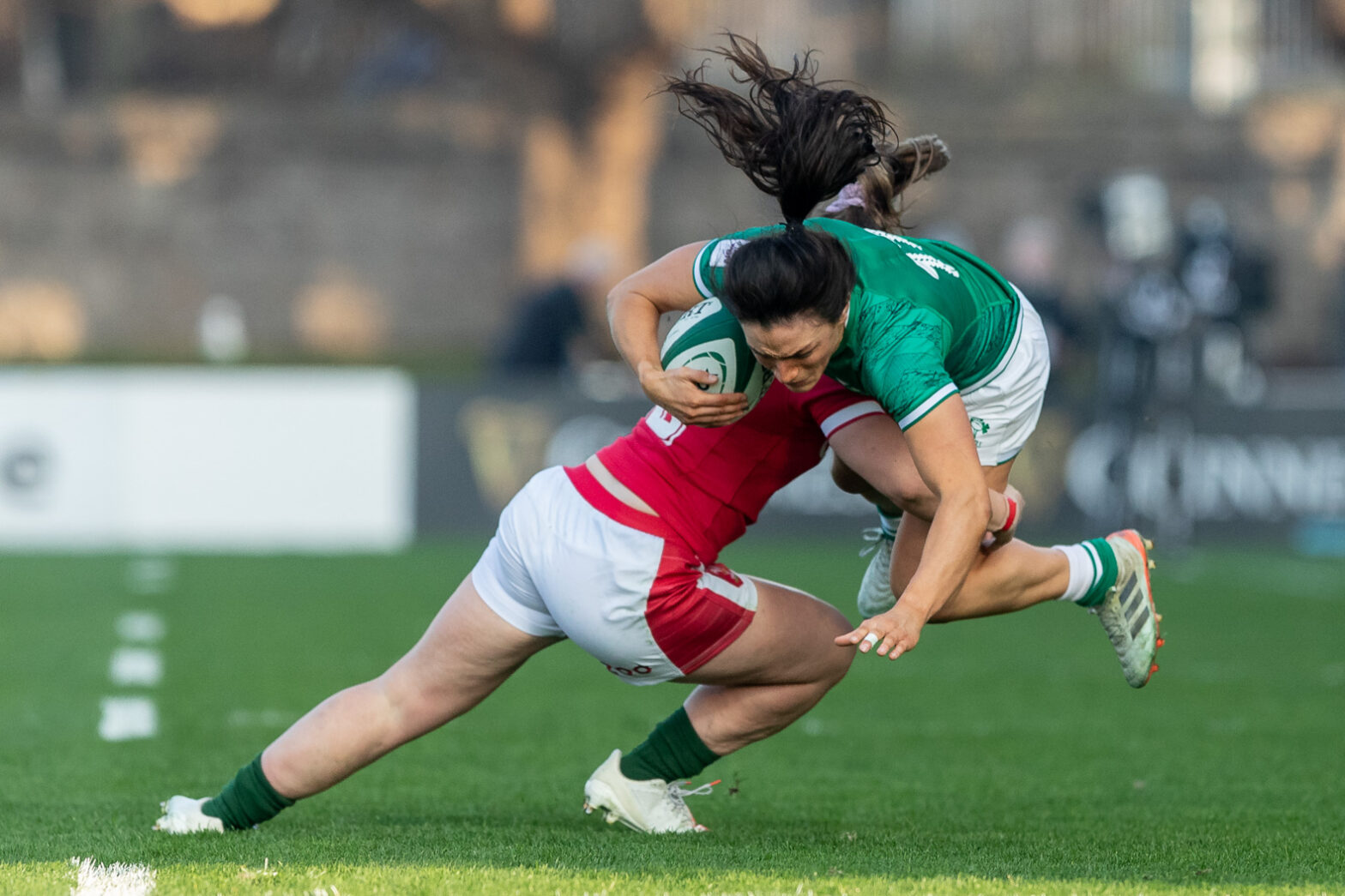
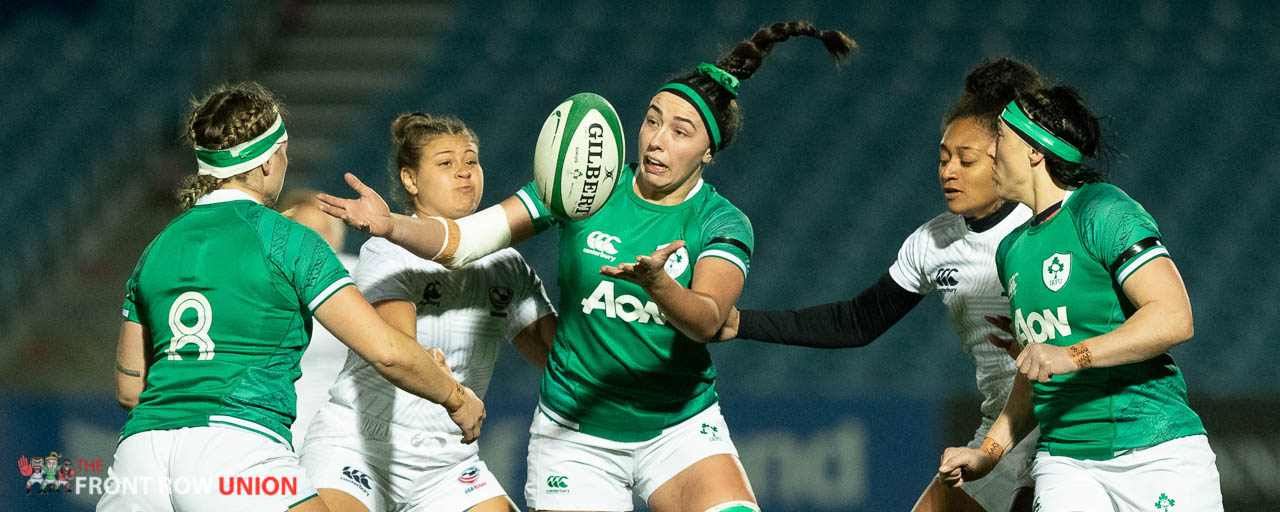
Corrections, comments or questions?